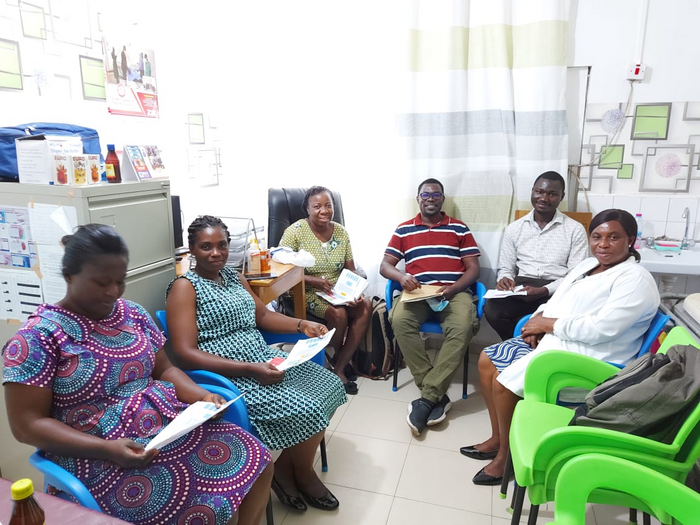A culturally appropriate model of end of life care is being developed in Ghana in order to empower countries in Africa where palliative care is scarce.

Credit: Lancaster University
A culturally appropriate model of end of life care is being developed in Ghana in order to empower countries in Africa where palliative care is scarce.
COMPASS Ghana is the brainchild of health researcher Dr Yakubu Salifu from Lancaster University in the UK who was a registered nurse in both the UK and Ghana for 15 years.
His research is published in the British Medical Journal’s Supportive and Palliative Care.
In low-resource communities in Ghana, the lack of palliative care means that patients with life-limiting illnesses are too often left to die an isolated, painful and undignified death.
Dr Salifu said: “The demands of care can result in poor communities in a loss of income, an inability to work, and young children – often girls- withdrawn from school to care, as well as the anguish and anxiety within the home and wider community.”
He has combined his nursing experience and academic expertise to create a culturally appropriate model called ‘Compassionate Palliative Services’ to address the lack of palliative care in resource poor communities. This was developed followed a series of visits to Ghana and stakeholder consultations with private and public health care professionals, regulatory agencies, patients and family caregivers’ groups, faith-based organisations and community influencers.
The result is a charity called COMPASS Ghana with the ambitious aim of providing universal end-of-life care by the end of the decade. https://compass-gh.org/
He said: “We are using an appropriate approach that is line with traditional cultures and beliefs. Our vision is to align Ghana, with Kenya, Uganda (Hospice Africa) and the Republic of South Africa to provide centres of interdependent excellence for training and research – to deliver a profile of medical and nursing care appropriate for the continent.
“Faith, Culture and Tradition play a key role, not just in Ghana but in many resource poor communities. Given the geography and poor infrastructure, such as poor internet access, the answer does not lie in a straightforward application of Westernised palliative care models. Instead we are building compassionate communities and home-based networks for the care of the dying, such as those being advocated in public health approaches to palliative care that is tailored to the context.”
In low-resource communities in Ghana, the lack of palliative care means that patients with life-limiting illnesses are too often left to die an isolated, painful and undignified death.
As the Chief Executive Officer of COMPASS Ghana, he said the demands of palliative and end-of-life care in that country can have devastating effects.
Dr Salifu said: “The demands of care can result in poor communities in a loss of income, an inability to work, and young children – often girls- withdrawn from school to care, as well as the anguish and anxiety within the home and wider community.”
According to COMPASS Ghana:
- 86% of the Ghanaian population are without access to meaningful palliative and end-of-life care
- 63 is the average age of death
- 48% of the population have no health insurance
- 30% of the population are facing significant journeys, often on foot, to their local hospital
COMPASS Ghana is working in partnership with key service providers and communities in Ghana. Using a compassionate community approach and the unique socio-cultural African context, the charity revolves around patients’ and caregivers’ active involvement and participation in care provision.
This approach centres on the creation of new palliative ward hubs within the main teaching hospitals in Kumasi and Accra. These wards will serve as centres of excellence and transfer palliative skills into mainstream clinical care and training.
Th charity will also establish small, agile Mobile Multidisciplinary Palliative Care Teams to work alongside patients and caregivers in hard-to-reach rural communities. These will deliver the practical skills and knowledge needed to care for life-limiting illnesses with dignity and to empower families to provide aspects of end-of-life care within their own communities.
Dr Salifu said: “Our aim is to help deliver universal end-of-life care in Ghana by the end of the decade. Our vision is to expand our activities to other African countries as we gain traction and experience.”
Journal
BMJ Supportive & Palliative Care
DOI
10.1136/spcare-2023-MCRC.16
Method of Research
Observational study
Subject of Research
People
Article Title
One step at a time; using compassionate communities’ model (COMPASS Ghana) to impact on the delivery of palliative and end-of-life care in resource-poor setting
Article Publication Date
6-Feb-2023




